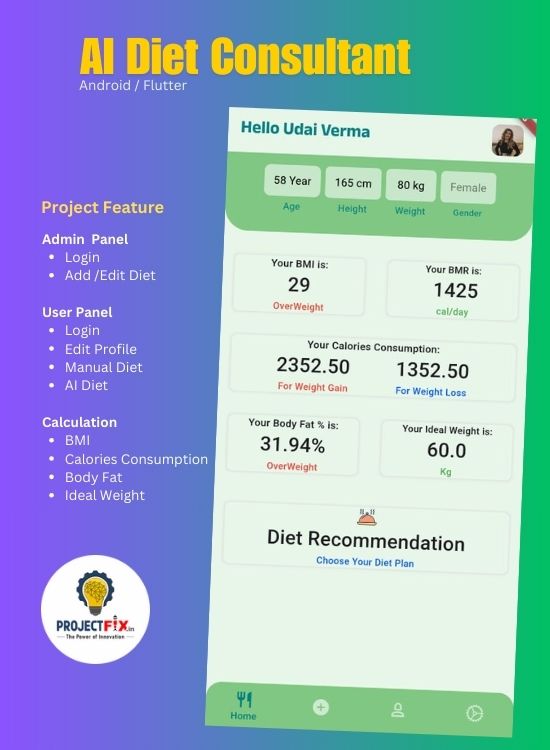AI Diet Recommendation
That sounds like a fantastic initiative! Such a system would not only help reduce food waste but also contribute to addressing issues of hunger and malnutrition in communities. By connecting restaurants with NGOs through an efficient platform, it streamlines the process of food redistribution and ensures that surplus food goes to those who need it most. It's a win-win situation for both the restaurants looking to minimize waste and the NGOs striving to support vulnerable populations. Plus, leveraging technology like an Android-based system makes it even more accessible and scalable. This kind of innovation could have a significant positive impact on society.
Overview
An Android-based Food Waste Management system offers a revolutionary solution to address two pressing issues: food waste and hunger. By leveraging technology, this system efficiently collects leftover food from hotels and restaurants and redistributes it among those in need, facilitated by NGOs dedicated to combating starvation and malnutrition.
The process begins with NGOs raising requests for food supply through the application. This simple yet powerful feature streamlines communication between NGOs and restaurants, enabling them to connect seamlessly for a common cause. Once a request is accepted, the system facilitates the collection of surplus food from restaurants by the NGOs.
This system revolutionizes traditional food redistribution methods by introducing a centralized platform accessible via Android devices. It eliminates barriers to communication and coordination, ensuring that surplus food reaches those who need it most in a timely manner.
Restaurants benefit from this system by reducing food waste and contributing to social welfare simultaneously. Instead of discarding excess food, they can channel it towards feeding the hungry, thus aligning their business practices with social responsibility.
For NGOs, this system provides a reliable and efficient means of accessing surplus food from restaurants. By streamlining the process of food collection and distribution, NGOs can focus their efforts on addressing the root causes of hunger and malnutrition in their communities.
Overall, an Android-based Food Waste Management system represents a symbiotic relationship between the food industry and social welfare organizations. It harnesses the power of technology to combat food waste while addressing the critical issue of hunger. With its potential to scale and adapt to different contexts, this system has the capacity to make a significant impact on food security and social equity worldwide.




